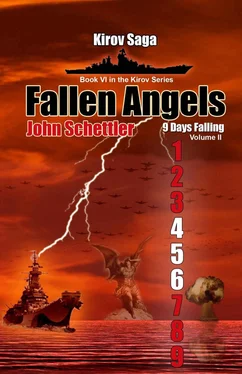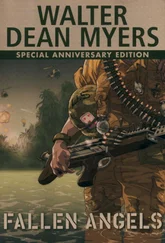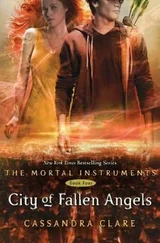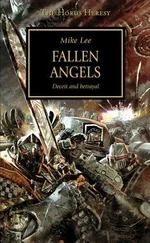At that moment there was a soft buzz at the secure door and Leyman turned to give the Marine guard the nod. The door whisked open and a White House staffer rushed in, leaning close and whispering in Leyman’s ear. His expression darkened immediately, and he dismissed the aide with a grave nod. When the room was secure again he turned to the others and folded his hands on the table.
“Well gentlemen, it appears the Admiral is correct about that Boomer hunt. A few minutes ago there was a missile launch off the West coast. Your people will have this information by now, Admiral, but to make a long story short, there’s been a detonation…”
He let that hang there for a moment, his eyes looking from Ghortney, to Lane, to Reed. Then he qualified his statement with the word no one wanted to utter in that room, but one that was in the back of each man’s mind.
“It was a nuclear detonation, and apparently the whole west coast is as dead as a doornail.”
“What?” Lane was practically out of his chair. “How many warheads? How many cities did they hit?”
“They didn’t hit any cities,” Leyman explained. “It was a single warhead. The detonation was well up in the atmosphere over Nevada, and everything from Seattle to San Diego went dark.”
“A single warhead,” said Reed looking at Lane with an ‘I told ya so’ in his eyes. “A goddamned EMP strike.”
“That appears to be the case,” Leyman went on. “The whole power grid is down. Hoover Dam is off line, Glen Canyon, a number of others. The grid is down and the blackout extends as far east as the Rockies in places. I’ve got to see the President at once, and this puts us at DEFCON 1, does it not?”
“Cocked Pistol,” said Lane reciting the code name for the highest condition of strategic alert. “Maximum readiness with an expectation that nuclear war is imminent.”
“That’s what I thought,” said Leyman. “Well if you’ll excuse me gentlemen, we’ll have to continue this briefing after I bring in the President. If we are now holding that cocked pistol it will be his finger on the trigger, and damn soon unless we make some other arrangements with the Russians and Chinese.”
He stood up, buttoning his suit coat in a gesture that somehow seemed out of place. It was a small habitual civility; well practiced decorum, yet outside the secure underground bunker the world was about to go ballistic.
“Arrangements?” Ghortney gave Lane a look of chagrin.
“That’s what we do in the civilian branch, Admiral. We make arrangements. Hold tight, gentlemen. The President is on his way here now.”
* * *
Controlledchaos was the order of the day on the streets of the City—barely controlled chaos. Every traffic light in the city was dead, but that didn’t really matter because every car was dead! The traffic was backed up for miles on the tortuous bends of the Bay Area freeways. People had no idea what had happened for the most part, as there were no radios functioning either, and so their first reaction was to reach into their pockets for a cell phone, but they were all dead as well. Within minutes thousands were out of their cars, basically exchanging versions of the very same story. They were just driving along when the car seemed to lose all power. There were scores of accidents, hundreds of hoods up with well intentioned men peering into the engine compartment of their vehicles, but not one was going to be started again anytime soon.
As the minutes became an hour people just started off on foot, amazed and stunned by what had happened. There were throngs crossing the Golden Gate and Bay bridges on foot, and bike riders were suddenly kings of the highway—until people started yanking riders out of their seats to get at the bikes. In and around the major airports there were massive fires from wrecked planes burning uncontrolled when airlines in mid-takeoff or landing approaches suddenly lost all power and came crashing to earth. All across the Western United States planes were falling from the sky.
No aliens in orbiting ships were responsible for the falling skies, it was just a couple of well placed missiles with EMP warheads. The pulse they created cascaded down through the upper atmosphere, a massive sizzle of voltage faster than any circuit breaker or surge protector could react. Virtually every unshielded electronic device, and the entire power grid from Colorado to the Pacific coast, was toasted in just one split second.
It would take long months, more like years to restore the area to what it was just a few seconds before the detonations. But the world didn’t have months or years to do the required work. It had nine days, and of this was the twilight of Day Five.
Karpovhad his verdict, the consensus of the three Captains after a brief face to face meeting aboard Kirov in the officer’s mess hall. It had been a long discussion, but the urgency of time forced them to a hasty decision. Yeltzin had advised caution, suggesting the flotilla should disengage and head east into the Pacific to better assess the situation and buy more time for a final decision. Yet Karpov argued that would simply postpone the inevitable. They would have to confront the proverbial ‘powers that be’ at one time or another. Better now than later.
Captain Ryakhin, younger, less experienced, seemed to gravitate to Karpov’s point of view. He had been heartened by their earlier interventions, seeing how easily they could handle the ships of this era and bolstered by the decision to assist the Russian invasion of the Kuriles with naval gunfire support. A dedicated officer, he strongly suggested that they should fight on behalf of Soviet Russia, their homeland, even if it was not the Russia they had come from.
“We are Stalin’s wayward sons,” he said. “He may have been a brutal father, but the Russia we left behind was molded in his hands.” Ryakhin was also feeling just a little guilt over the live fire incident that had downed the American reconnaissance flight. This mishap had forced the action and seemed to stir up quite a reaction in response. Ryakhin apologized to Karpov, stating he would enforce better discipline in the future.
In the end it was decided that they would make one last attempt to negotiate with the Americans and, if they refused or pressed any further attack on the flotilla, they would meet that hostility with equal force.
“And I will be the judge of what ‘equal force’ means,” said Karpov. “It will be my intention to defend the fleet with conventional weapons, and this may mean offensive operations on our part as well. Yet I have been through all this before. We have limited missile inventories, and when the missiles are gone, we become little more than fast cruisers in a sea of trouble. They will harry us and hound us until they catch us one day, and then it will come down to deck guns. We may win some of those battles, but then again we may get hurt as well. You have seen the damage to this ship when we returned to Vladivostok. Let that be a stern reminder.”
“The odds are very steep, Karpov,” said Yeltzin. “Do you really want to engage the Americans now? Now, when their entire navy is concentrated within a few hundred kilometers of our present position?”
“Now or never,” Karpov returned. “If they attack us with what appears to be overwhelming force I will issue you a coded signal— Hellfire . This will convey my decision to utilize a tactical nuclear warhead, though I do not take it lightly. I intend to give the American Admirals the opportunity to avoid conflict. We shall see if they are wise enough to do so, but I will not back down here. That said, I will be the sole authority on use of nuclear weapons. Neither of you are to mount tactical warheads on missiles unless I give such an order—understood?”
Читать дальше











